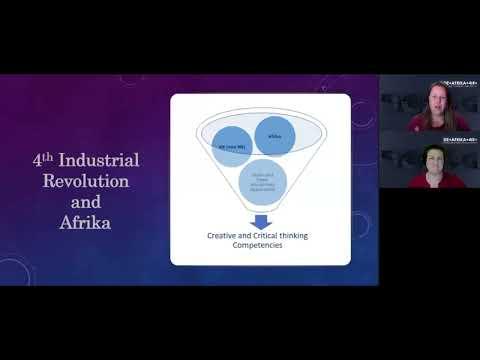Dismantling boundaries: Does a transdisciplinary and multi-disciplinary tertiary education approach support the development of creative and critical thinking for an Afrikan design and business context?
Conference:
Discipline:
Download:
In this paper, we examine the impact that transdisciplinary and/or multi-disciplinary educational approaches have in developing critical and creative thinking competencies in a bachelor’s degree context. Strategies relating to integrated assessments within research-based modules are used to explore how transcending disciplinary boundaries in different fields are approached – one a business qualification and the other a creative/design-based qualification. This is also particularly significant in terms of an emerging call to contextualise curricula for Afrika, including adopting more decolonised transdisciplinary research approaches. Focus will fall on the educator rather than the student experience in this regard, as educators not only design and assess these modules, but are being called on to facilitate student experiences on new and innovative teaching platforms. In particular, we hone in on how the convergence of developing critical and creative thinking competencies through integrated assessment strategies prepares students for the contexts of the fourth, and emerging fifth, industrial revolutions and how these, in turn, require real-world approaches to various problem-solving contexts. Through this, we seek to determine how liberating students from disciplinary boundaries, as envisaged by a transdisciplinary and/or multi-disciplinary approach, enables a focus on the application of knowledge and competencies with greater impact.
Semi-structured interviews with educators from two private higher education institutes are used, triangulated by a review of module outcomes and curriculum documents related to specific research-based modules, in order to explore the constructed and enacted theory of educators. This paper further explores whether professional development is needed to better equip educators with the necessary tools to align their knowledge and competencies to transdisciplinary strategies that would enable a more confident integration within virtual platforms.

